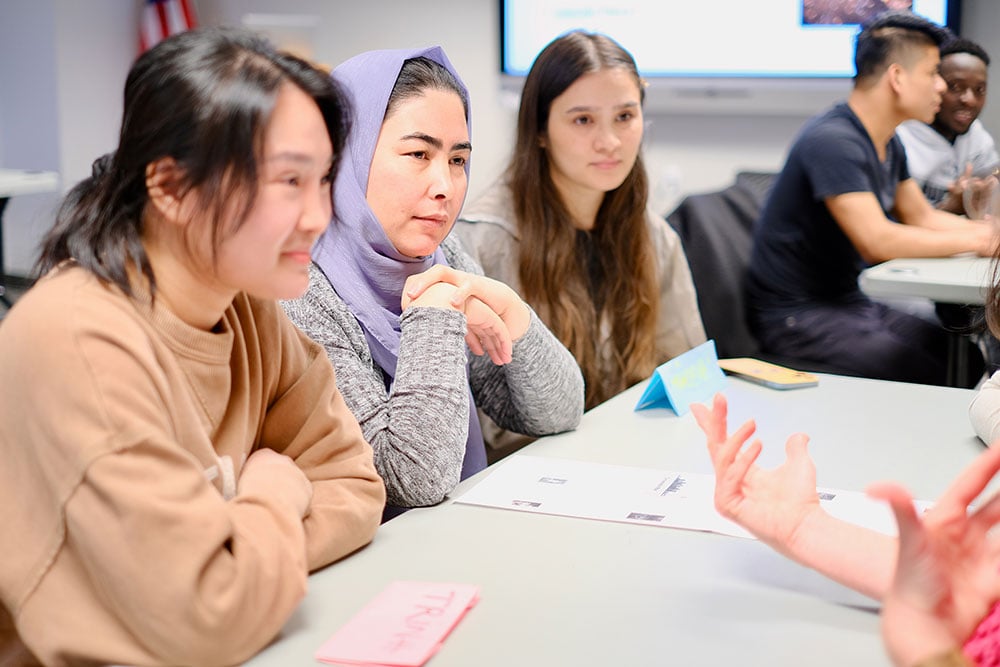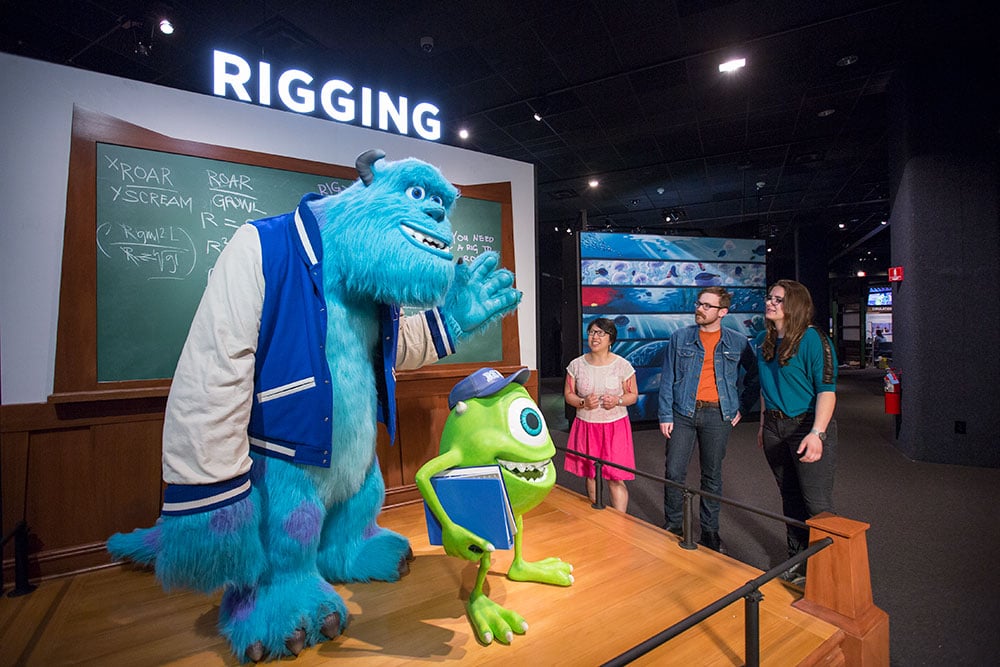Pittsburgh Foundation to Donate $50 Million to Advance Racial Equity and Justice
Priorities over the next five years are to promote philanthropy, support community and catalyze partnerships.

PHOTO BY DENISE BONURA | EMILY MARKO PROVIDES A GRAPHIC RECORDING OF THE PITTSBURGH FOUNDATION’S STRATEGIC PLAN UNVEIL TUESDAY AT CATAPULT GREATER PITTSBURGH IN BELLEVUE.
No matter what seat we’re in on the plane, we’re all on the tarmac together.
Michelle Sandridge, longtime supporter of The Pittsburgh Foundation, summarized the organization’s five-year strategic plan perfectly Tuesday during an unveiling ceremony at Catapult Greater Pittsburgh in Bellevue.
The foundation’s board and staff outlined the blueprint that will first invest $50 million of its unrestricted grant-making pool over the next five years to advance racial equity and racial justice.
“The plan that will guide us through the next five years comes out of an unprecedented effort to bring together diverse people and ideas: our nonprofit leaders who accomplish so much with so little; our donors and business leaders who invest for a better future; our community leaders and elected officials who advocate for change; and our generous foundation community,” said Pittsburgh Foundation President and CEO Lisa Schroeder in announcing the plan.
The plan’s call to action is to achieve racial justice — “to build a society in which race is no longer a determinant of who thrives and who gets held back,” added Schroeder in her presentation.
An example of that commitment is that, by 2027, at least 50% of unrestricted grants will benefit organizations led by and serving Black, Indigenous and People of Color (BIPOC) communities.
The foundation’s staff will also invest time and other non-monetary resources in its work to end inequities.
Schroeder highlighted historic disparities throughout the region that became clearer when the pandemic hit, such as the number of Black and Latino residents living in poverty.
The U.S. Census Bureau’s American Community Survey showed in September that 20.2% — or more than a third — of Pittsburgh’s Black and Latino residents, and more than one-in-four Asian residents lived below the poverty line last year.
“We want to create an equitable, just and viable community by connecting people to critically important causes and firing up the beautiful aspirations that have been shared with us,” noted Schroeder.
With total assets of $1.46 billion, the Pittsburgh Foundation is one of the nation’s oldest community foundations and is the 14th largest of 750 similar foundations in the U.S., according to its website.
Board Chair John R. “Jack” McGinley, who led the yearlong strategy development, said the new plan recommits the foundation to dedicated stewardship of its donors’ charitable giving.
“The lifeblood of every community foundation is its donors, and our plan continues our 78-year partnership so that through our collective efforts, we can have an outsized impact on the most pressing needs,” McGinley said. “To increase the power of their personal philanthropy, we will continue to support and foster our donors’ philanthropic goals.”
The plan is centered around key pillars — promoting philanthropy, supporting community and catalyzing partnerships — all anchored and founded on racial justice, added McGinley.
Bill Strickland, chair of The Pittsburgh Foundation’s Program Committee, said the plan will provide multi-year support for a number of Pittsburgh-based nonprofits so they can “focus on doing their best work, and not on where the support will come from.”
The plan includes increased grant-making opportunities to strengthen small and midsize arts organizations; provide basic needs so residents have access to essential resources for living, such as child care, food, shelter and mental health and medical care; provide access to higher education and career development; access to healthy air and water; and equity and social justice to address the causes of racial inequities.
The Rev. Paul Abernathy of the Neighborhood Resilience Project said he was pleased to see the plan come together.
“This is a new regional perspective on issues that have plagued us for many years,” he added. “The foundation has a history of supporting our work toward long-term community resilience. It’s an absolute game changer.”
Anne Lewis, chair of the foundation’s Development and Donor Services Committee, spoke on the importance of promoting philanthropy and making the foundation more accessible to donors in all areas of the region.
“None of our grant making would be possible without the support of our donors,” she said. “The Pittsburgh Foundation has a long history of partnering with donors to make sure their donation has the most impact and that will never change.”
Sandridge said she believes in giving back and that her community in the Hill District has a rich history of giving back.
“What I see in this plan is an opportunity for people to come together, organize and give back,” she added. “ No matter where we are sitting, we are all on the tarmac together and we all landed at the same time.”
Kyle Webster, vice president of housing and general counsel for ACTION-Housing Inc., touted the foundation’s work during the pandemic in helping create the emergency rental and utility payment programs.
“In 2020 and 2021, Allegheny County learned it had a bit of a leg up on other regions in the country because of The Pittsburgh Foundation. We had the trust and relationships in place that allowed us to hit the ground running,” he said.













